|
Exercise is part of staying healthy and helping your brain to be healthier too. If you move as much as you can, as in, as many body parts as possible, and even take the stairs when there's an elevator near by, you are doing your body a favor. Some of us still go to the gym, or walk the dog, or just explore our neighborhood season to season and it's all good. It all adds up. I do an exercise routine before I get out of bed in the morning. With a rolled towel under my neck for good support I exercise all the joints that help me walk, such as hips, knees, and ankles. If I was a little stiff just getting up to use the washroom, and then lie down again to do my exercises, when I get up afterwards I can feel the difference. It feels good. I have more energy and nothing is creaking or threatening to give me trouble with my balance or mobility. I was displaying my products at a Chrsitmas Market in a community center and a very frail lady walked in with her cane. She was dressed in hiking boots, a bulky knit turttle neck and a fleece lined leather vest. As she came around to my table, walking very slowly and methodically, I said, "My you were brave to come out on a cold winter day! Did you drive here? " And she said, 'No I walked. I just live down the block. " I said, "You seem to be really active and not letting anything stop you!" She said, "Well, you can let your pain keep you home, or you can take it with you!" What a wonderful idea! She was not letting her pain keep her from coming out to explore the Christmas market and she was walking in practical footwear, with her cane to steady her and I imagine watching for any patches of ice on the sidewalk or parking lot. I decided to remember that wisdom. Most of us just want to justify taking a pain med and then not moving, but we aren't doing our bodies, or our minds any favors. She was stimulating her brain as well as her body by making the effort to come out. Yes, she had to go slow and steady, but she was increasing her seratonin level by the delight at seeing all the beaitufl gift ideas and crafts, AND she was socializing which is also good for your mental health. My physio therapists have always said to ignor the "no pain, no gain' mantra since pain that can cause an injury to a muscle or ligament isn't good for you. They always taught me to move and stretch as far as possible with no pain and do that a few times before trying to go a little further or longer and it works. After a few days of stretching and exercising you begin to frind yourself adding another five or ten counts without even realizing it to your routine. Those little landmarks increase confidence and motivate me to not stop, to keep moving, and to look forward to a longer healthier life and brain health.
0 Comments
 The more I research and follow those who are becoming experts at all things dementia, the more I realize we can ALL do something about preventing, treating, and even reversing many of the worst symptoms. There is a lot of information and sometimes it feels overwhelming by the data and the different voices but there is a bottom line to all of this. Our parents and especially our great grand parents had lifestyles that were naturally more suitable to their brain care. We are the generation that has access to so much processed food, and our daily pace can tempt us when we don't have a plan in place to take care of our brains in all the following ways:
I have become more intentional, scheduled, and following a routine to give myself the best chances of preventing, or at least slowing down cognitive impairment. At the same time I don't want to be relisous about it or obsess to the point of worrying about every little thing! I think when you get the information through good research and education, you can then apply what's being recommended to your lifestyle and make it work without becoming stressful over all these things. Having a good sense of humor goes a long way and don't sweat the small stuff. Life at our age is getting shorter so we can't afford any time being offended, angry, worrying, or taking on what we used to twenty years ago. I go slower and more methodically. I give myself more time to leave the house, drive the car safely, and show up early to get the best parking spot without a handicap tag! I do as much as I can that I'm enjoying with the level of energy I have on any given day. I have friends who are 100% focused on just self care but even at that are living the most actrive and energetic lives they can. Zoom and FaceTime helps to stay in touch with friends and family. More deliveries can be made from online or phone in orders. These limit time away from home if it's ice on sidewalks, or slippery on snow. It all helps to use self discipline to avoid too much sugar, carbs, and dairy by preparing and having on hand a lot of the foods that are more healthy and especially those that contribute to good brain care nutritionally.  Monitoring My Own Symptoms! The more I investigate about the mind, and specificaqlly dealing with dementia...and the more I stop and watch videos on how dementia is being reversed or even "cured"... the more I realize I have to take steps to slow down or prevent it in my own senior experience! Because there is more and more on the market and in the medical field that I can research and easily apply to my own life, especially in the area of nutrition, I've switched gears to just telling my experieince with Mom and Dad's dementia, to helping people prevent or reverse the symptoms. In every case, there are some symptoms that may not be dementia in the first place, and others that may not change due to long term damage or lack of knowledge in time. My husband and I are in our senior years, or as I call it, "Fourth Season" and are paying the price in aches and pains from injuries we suffered when we were young and tireless; full of energy and willing to take risks for adventure. Some of those symptoms can be treated and made more comfortable, but less likely to be reversed. Having said that, the scientific community are finding out more and more just how resilient and self-healing our bodies are, including our brains, when we treat them right over time; giving the body everything it needs to regenerate. We know many cells in our body regenerate, or get removed as they degenerate. Some say that every seven years the process has completely changed every cell! We are amazing creatures. (Click on Image for Article) Discovery.com: www.discovery.com/science/Body-Really-Replace-Itself-Every-7-Years ) Now I'm more on a mission to help people consider alternatives to maintaining brain health, apart from pharmaceuticals who admit they haven't designed the 'magic bullet' for dementia or Alzheimers. Years ago we called it having a 'feeble mind' and believed there was nothing that could be done. Now we have many more options and I for one am taking advantage of ALL of them. Eating more fresh and natural food. Eliminating gluten, some dairy, and all refined sugar from my everyday diet and getting good therapy and regular treatments for circulation, supplements, and ways to reduce stress. I have found the exercises that help the most, including keeping busy with things I love, like art, graphics, reading, and playing brain games that I know are helping my brain health. Check out the videos I've listed and when you do, there are likely others that pop up in the YouTube feed. https://www.done-with-dementia.com/video-stories.html One of the main reasons we kept our parents together in our managed care was because of the reports from nursing homes and senior facilities. You've heard about how protective animals are of their young. We felt like that about our parents. Once dementia struck it was even more critical that neither of our parents would ever have to face or deal with abuse.
You can see from this chard that ove than half of all abuse stems from neglect. The animal shelter people know this all too well. When we had occasion to call an ambulance the EMS personnel commented on the number of seniors they attend who are living at home in appalling conditions. We experienced social workers coming up to us before discharging our parents from short hospital stays to confirm that they had decent care. Other arrangements are often made and a senior won't even go back to the home they were picked up in by the ambulance. Can you imagine that? Can you imagine the level of trauma, stress, confusion, concern and even more if that senior has pets? We just didn't ever want our parents to experience anything like that. Once we had nurses hired to help us with our Self Managed Care Funding we heard the stories of the abuse that went on witnessed first hand by these nurses in facilities. We could understand that dementia can cause difficult attitudes and uncooperative behavior. This usually has to be evidenced before serious medication is administered. Some behaviors lead to assault of a caregiver by the resident because of confusion especially when trying to help in a physical way where normal privacy is invaded. In my book I take time to mention that sometimes what is being chalked up to dementia, is just a normal reaction which any of us would exhibit if treated the same way. It's not easy to manage the care of people with dementia and like small children who aren't safe to be left alone, you sometimes find out the hard way, what needs to be put in place for their safety and your sanity. My confession is that I often scolded my Dad for how he treated Mom and ran to his bedside as he lay in palliative care to ask his forgiveness. His last words to me were, "I forgive you!" With everything that happened in 2020 affecting the elderly the most, we saw news feeds of families not allowed to visit their parents or grand parents in facilities locked down. We witnessed tears of adult children knowing their parents were sick or dying and they couldn't be there to comfort, hold their hands, or hear their last words. This may be the year you take a closer look at how to care for your parents when they aren't safe to be left alone and can't live independently. If you wonder why you would do that, ask yourself these questions: How did your parents 'pay it forward' for you? What do you have today because of your parents? What did your parents invest in you or for you, that makes you special, unique, and grateful? What they've paid forward you can pay back and begin this year. One example from our experience. Our parents took us on trips. They 'dragged us around from "pillar to post" as my mother sometimes said. Some travel was when we moved overseas with their work, but many short jaunts were just for a drive or a picnic. Mom and Dad loved an adventure which is what they made every time they needed us kids to cooperate and get excited about another move or chore. When we had the total care of their lives, It became the pleasure of our family to do as many things for them as they had done for us. This included some short trips. To be honest, when dementia strikes, they may not remember the things you are doing, but your joy at the prospects and memories of your childhood creates an atmosphere they can still feel in their hearts. Every time you venture out, you will be comparing what they are enjoying to what they wouldn't be doing in a facility. And especially not with you, their beloved child rather than an employee or contract worker.
Three reasons why I was so committed to managing the full time care of our parents the last five years of their life were because:
These may not be the exact reasons you want to find out if you CAN or WANT to do what we did. But many more adult children are worrying about their parents. Unfortunately our lives and routines get on a track and it isn't until there's a crisis with one or both of our parents that we have to stop and decide how this is going to affect our lives, if at all. One reason I offered to become the Enduring Power of Attorney early on was because I was an associate for Legal Shield (formerly Pre Paid Legal). One of the services offered and stories shared amongst associates was about the importance of having legal documents in place, especially if dementia was a factor in elder care. If you are interested in an affordable Legal Plan check the one from Legal Shield. Dr. Natali Edmonds offers good information in a video: Dementia and Power of Attorney: Medical and Financial Power of Attorney for Dementia. By ensuring that your parents have legal things in place while they are mentally fit to sign the documents, you or someone they trust, are in place. In our case, we put this in place early 1992 but it wasn't until early 2006 that it became necessary to take over more and more aspects of their lives. We didn't know the level of dementia that was preventing them to live independently, even in assisted living. The six month stay there alerted us to make the changes we did to keep them together. The details are in my book, Done With Dementia: Keeping Your Parents Together. Please begin to pay back your parents by at least beginning discussions and researching who in the family CAN and WANTS to take this loving responsibility. Be the hero in your family. Get more done in '21. Happy New Year. Dementia is a word that most of us push away unless we know someone close to us who is exhibiting the symptoms. From this chart you can see that the red bars are almost doubling every two decades. We are smack in the middle of this chart, at the end of 2020.
My parents began to exhibit symptoms of dementia in their 70s, which was also early 90s. However, as I share in my guide and the book, Done With Dementia: Keeping Your Parents Together, we didn't look at the statistics. We were just living life and checking in with Mom and Dad once in awhile, mostly for social visits. Dementia is on the rise because the population of those labelled 'seniors' and the 'elderly' is also on the rise. We are the baby-boomers, in North America. We have also been privileged to see three or more generations escape the ravages of war, that reduce populations. Unfortunately in our Western culture, we tend to see the path ahead to getting older in terms of government sponsored or private commercial facilities offering different levels of care, and for very different costs as well. For some reason other cultures don't think of placing their parents in facilities when they can no longer safe to be left alone. In those cultures there are already multi-generations living in the same home or community. Wen we took our parents out of Assisted Living after seven months, found a home for them, and began the journey of their care, we discovered it was rare for any family to do that. I was traveling corporately in the beginning of our journey with Mom and Dad and has opportunity to have discussions with many who were also in this 'sandwich' generation. For some the sandwich was between adult children still at home and their parents needs, or between successful or demanding careers and checking on their parents regularly. This was our fate too until something in me snapped and I decided my parents were a priority in my life. I closed down my 18 year consulting business and managed their care 24/7 in the last five years. We were totally done with their dementia when they passed away seven years ago, right about this time of year. Add to that the current crisis with the virus, lock-downs, and seniors inaccessible to family and friends, I can only imagine the number of people who may want to explore options for their parents. The challenge accepted made way for my book, this blog, and the website because it's become even more necessary to have more options as the cases of dementia rise. |
Linda McKendryArt and authoring are used to communicate in all areas of Linda's life. She is called to take people, places, and things to their next level through...
In order to make sense of complicated processes she just lists, draws, sketches, writes, or works in her studio with 'stuff'. Archives
August 2023
Categories
All
|

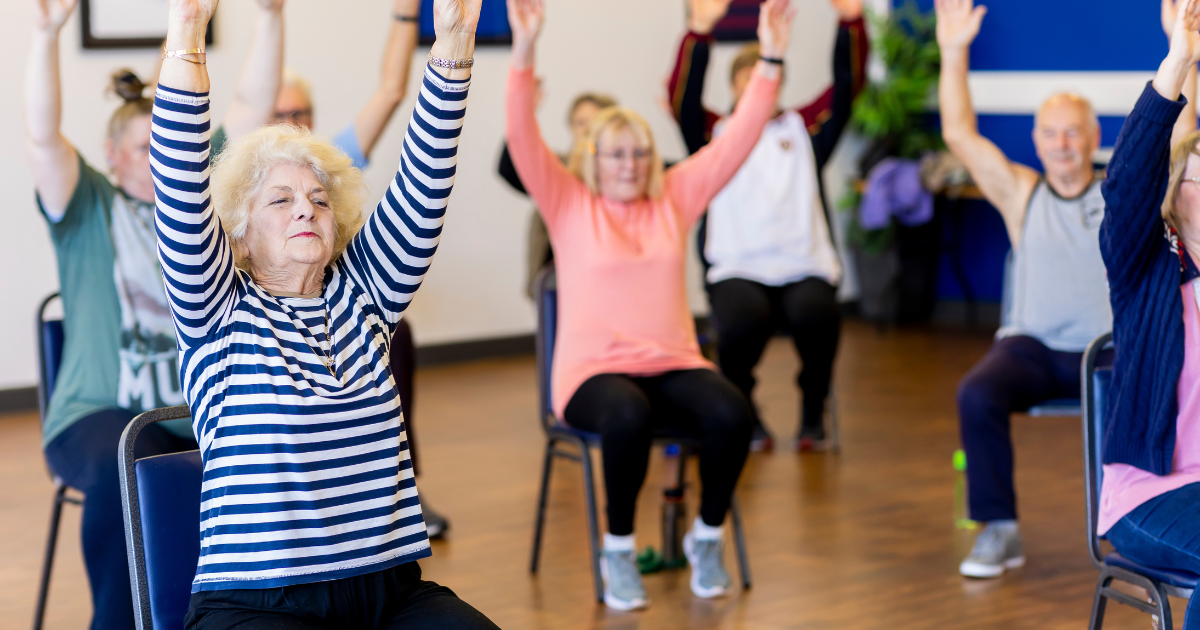

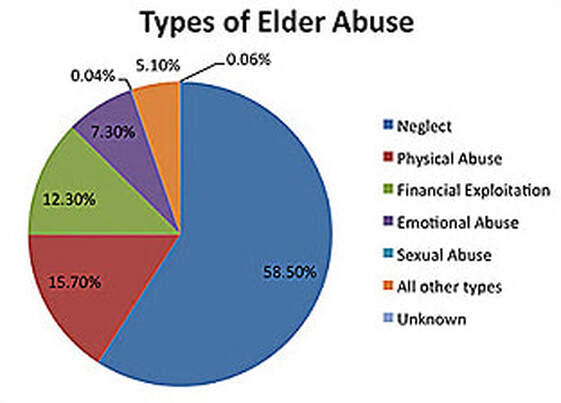
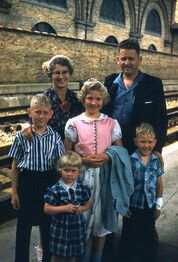
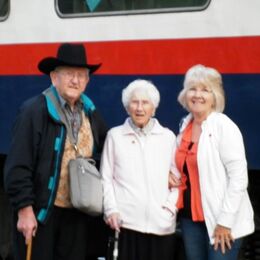
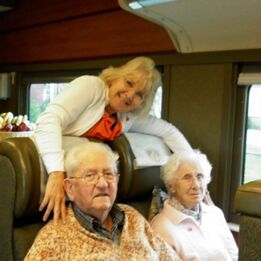
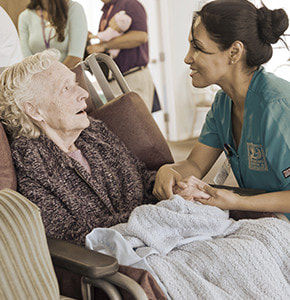
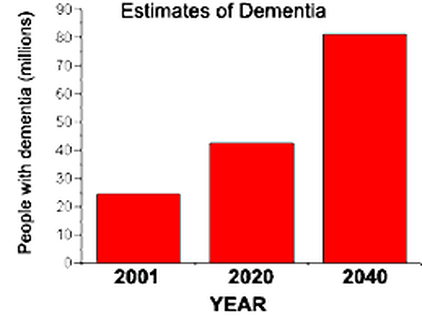
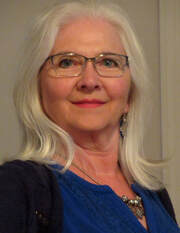
 RSS Feed
RSS Feed